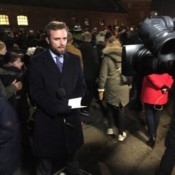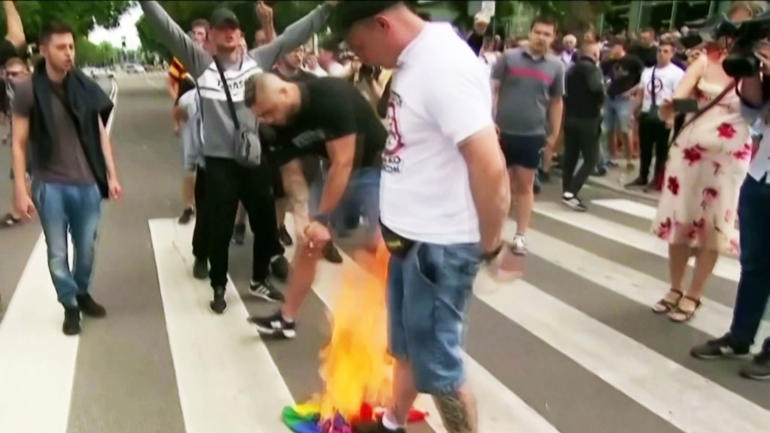Poles are voting in an election on Sunday, billed by both the main political parties as the most important for the country in decades. The Civic Coalition lags in the polls, but a strong showing in second place could still deny its opponents a majority.
Malgorzata Kidawa-Blonska wrapped up her campaign by calling on people to get out and vote.
Undecided’s may be few and far between in a political climate this polarised. That means first-time voters have been a particular focus for both campaigns.
Few Poles would deny Civic volunteer Natalia Polubiec’s claim that this is the country’s most important ballot since the end of the Cold War.
The incumbent Law and Justice Party is promising to continue Poland’s journey down a radically different path, one that questions the manner of its liberal transformation over the past three decades.
Nationalist party chair Jaroslaw Kaczynski has made scaling back LGBT rights the populist’s rallying cry. Such calls have led to street protests, and sometimes, far right wing violence in response.
23-year-old Law and Justice candidate Jan Strzezek wants to convey a rather different image.
“Law and Justice has over 10,000 members. It’s difficult to expect that in such a big group there won’t be those who use inappropriate language,” said Strezek. “We need to remember also that left wing circles use strong rhetoric.”
The outcome here will reverberate well beyond Warsaw. Poland’s Law and Justice government has clashed repeatedly with its partners in the European Union these past four years.
A second term looks likely. And there is little sign of compromise on either side.
 CGTN America
CGTN America

